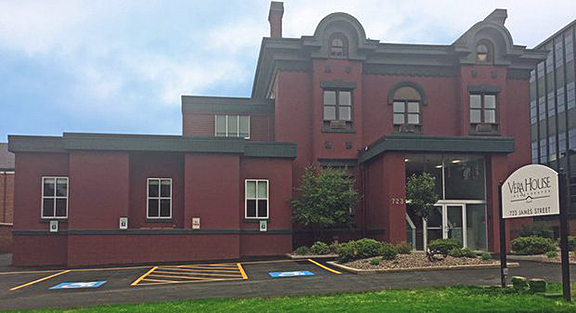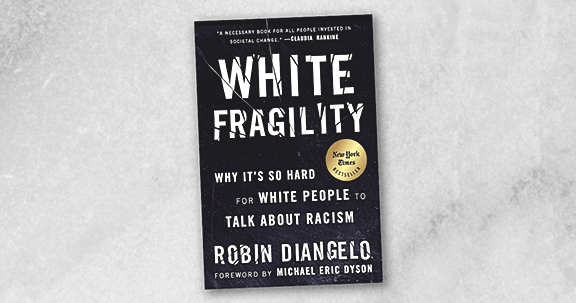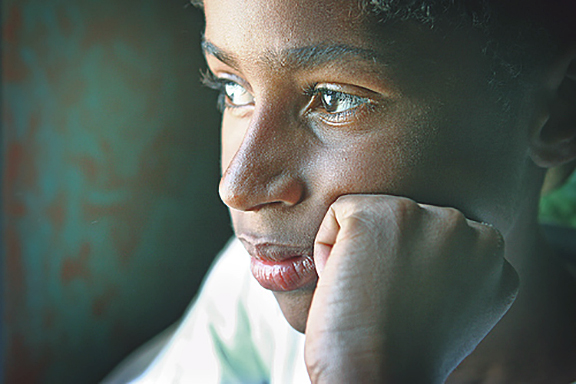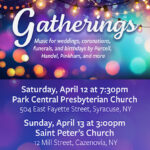Reflecting Back
I have a pamphlet hanging on my refrigerator. The pamphlet, published by Vera House, lists some features of verbal and emotional abuse. The list reads, “you are being emotionally or verbally abused if your partner or care provider…
- puts you down in public or private,
- causes you to feel confused, ‘crazy,’ unsure, or afraid when you are around them,
- uses your diagnosis, if you have one, as an excuse to hurt you,
- ignores or makes fun of your feelings.”
I haven’t provided Vera House’s complete list. I’ve listed the items I’ve asterisked as something to watch out for in general. The items describe interpersonal behaviors many of us encounter every day in some form, especially during 2020. I admit I’ve felt a little “unsure” since reading the November 15 cover story about Vera House’s proposed strategic plan. The Post-Standard reports Vera House seeks to “dismantle the white supremacist and racist foundations and systems of the organization to enable board, foundation staff, interns, volunteers, and victim/survivors full engagement.”
The Post-Standard reports that University of Washington Professor of Education Robin J. DiAngelo’s book “White Fragility,” prompted discussions and self-reflection among Vera House staff. Executive Director Randi Bregman states in the article that she is pointing a finger not at others, but herself. I fully understand what she is saying. I have pointed a finger at myself many times, including regarding items in the above list of verbal and emotional abuse characteristics at the beginning of this article. And, it has occurred to me that, when I point the finger at myself in a group where we all share some common behaviors or traditions, I am unintentionally, perhaps, pointing a finger at them.
How can a committed Vera House supporter, foundation member, or counselor not feel pointed at, when the Executive Director of the group states that the group will now seek to “dismantle the white supremacist and racist foundations and systems of the organization…” When a leader points at themselves, and you’re following them, they are pointing at you.
(I believe that the 45th president’s MAGA slogan was popular and successful in 2016 and to a degree, in 2020, not because he won the popular vote in either election because he didn’t, but because he was able to rally people to get behind a simplistic slogan meant not to provide a plan, but to counter anxiety over our shared and changing socio-economic and physical climate. MAGA plays better at a pep rally than the sentence I wrote to describe why MAGA plays well at a pep rally.)
Could challenging “white supremacy” based, in part, on discussions of an academic book that a priori ignores and makes fun of a group’s feelings be abusive in a way listed on Vera House’s own pamphlet?
Could being characterized as “white supremacist” in a group referential strategic plan qualify as being “put down in public or private?”
The book “White Fragility,” referenced in the Post-Standard article, asks the question, “why is it so hard for white people to talk about racism?” The question itself presumes that it is hard for white people to talk about racism. My experience and reading lead me to believe that it is not hard for white people to talk about racism. It might be hard for people of all cultures and ideologies to arrive at the same conclusions about historic racism and how race manifests in today’s multi-racial, multi-cultural world.
Our multi-faceted society leads to much intersectionality.
One online dictionary defines intersectionality as “the complex, cumulative way in which the effects of multiple forms of discrimination (such as racism, sexism, and classism) combine, overlap, or intersect especially in the experiences of marginalized individuals or groups.” I’ve seen the term “intersectionality” in many social media discussions of feminist issues some of which read like race-based us versus them verbal jousts. I’ve shared my perspective that religious notions of sexual purity have oppressed, suppressed, gaslighted, blamed, and marginalized women regardless of race, culture, or specific religion for millennia. There are feminist women on social media who read the word “purity” as automatically meaning racial “purity,” as in “white supremacy,” when it should be clear that “purity” has been equated with female virtue all over the world. Male sexual adventurism, especially during the neurochemically charged teen years and twenties, leaves less powerful, less savvy, and less protected girls and women vulnerable.

The current Vera House is a product of the 2005 merger with the Rape Crisis Center, which provided services from its location at the corner of James and Dewitt Streets in a building that I believe once housed Excelsior Insurance Company. Excelsior Insurance Company was not connected to the Rape Crisis Center; it just existed under the same roof.
Differing functions, people, and points of view often coexist side by side.
I used to hear that it’s a man’s world.
There was a song about that. I danced to it many times.
This mixed-up belongs to all of us.
Peace.











